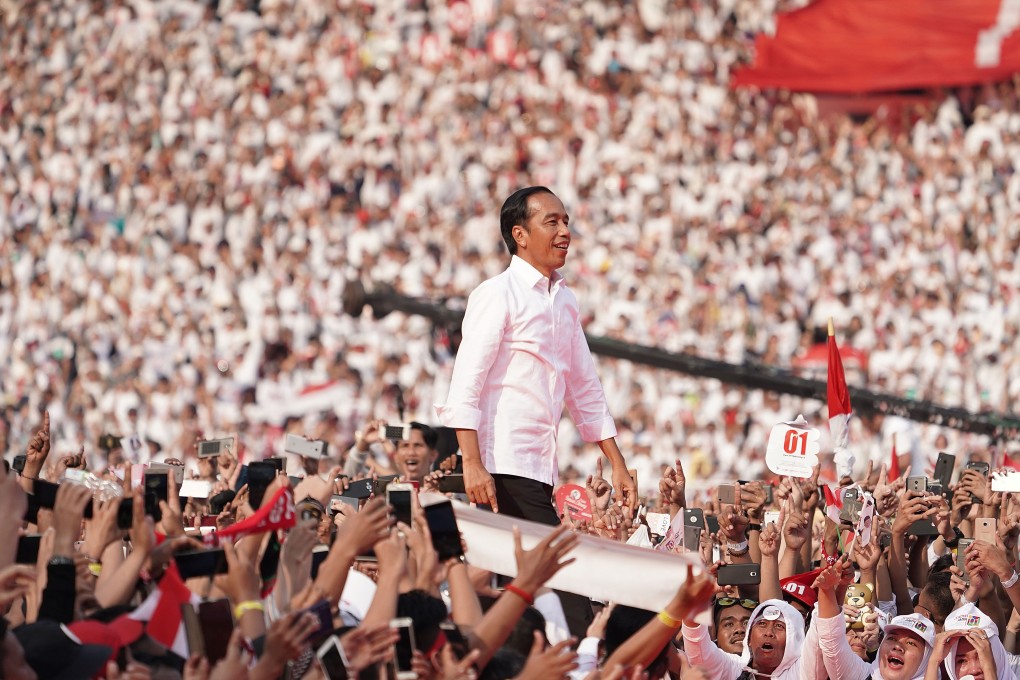Advertisement
Outside In | For a more equal and still diverse Indonesia, all of Asia should hope Joko Widodo’s second term is successful
- Joko Widodo had many successes in his first term, but not as many as promised
- As Islamism threatens and inequality looms, a prosperous second term would bring relief to investors, neighbours and minorities
Reading Time:4 minutes
Why you can trust SCMP

Anyone who has spent time in Indonesia will almost certainly have been influenced, and impressed, by the wayang shadow theatre, now honoured by Unesco as a masterpiece of oral heritage.
To me, it captures the mystery, complexity and inscrutability of Indonesia: a country in which the significant majority of the population (87 per cent) is Muslim, but is not a Muslim state and honours the diversity of its Hindu, Christian and Confucian communities; a country held together by founding president Sukarno’s “Pancasila” or “five principles”, but dangerously exposed by its diversity to the dangers of Balkanisation.
I have always joked with Indonesian friends that trying to understand Indonesia is like trying to understand a wayang theatre without being sure whether you are watching the shadow figures from in front of the stage or from behind.
Advertisement
And that is as true today as ever, as I wrestle with interpreting the presidential elections just over a week ago. The charismatic and pragmatic Joko Widodo – normally called Jokowi, and fighting for a second and final four-year term in office – is variously accused by opponents of being a bad Muslim, a closet Christian and a communist, when he clearly could not be all three.
It looks like Widodo won the election. Some 82 per cent of the 192 million potential voters appear to have turned out to vote, and early exit polls say he has a 10 per cent lead over his opponent, former general Prabowo Subianto. But Prabowo is insisting he has won, and is likely to contest the results, probably claiming vote-rigging, when the final count contradicts him.
All that can be said at this stage is that the massive challenge of organising a national election across such a huge and diverse country appears to have come and gone without a hitch – a momentous achievement that would feel all the more impressive if we were not at the same time watching India managing the mother of all democratic exercises, with similar patient uncertainty over results.
Advertisement
Select Voice
Choose your listening speed
Get through articles 2x faster
1.25x
250 WPM
Slow
Average
Fast
1.25x
